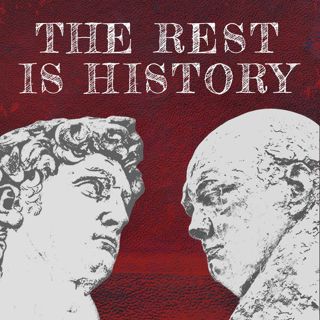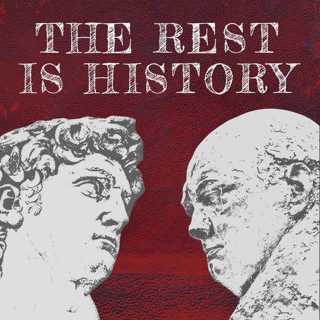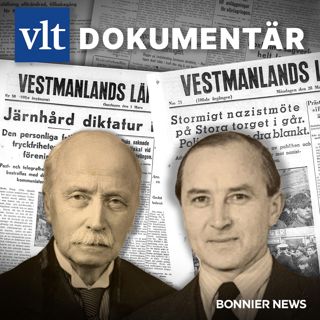
38. Communism
It was one of the great political ideologies of the 20th century, vying with capitalism for supremacy. Now communism has retreated from the political mainstream having failed to create the utopia of a classless society. Dominic Sandbrook and Tom Holland discuss the origins of communism as a theory and the frequently repressive attempts to govern by its principles. Learn more about your ad choices. Visit podcastchoices.com/adchoices
29 Mars 202151min

37. Spies, with Ben MacIntyre
History is littered with stories of espionage and its capacity to change the course of events. But does spying truly matter and has the human operative finally been replaced by the computer? Ben MacIntyre, author of books including Agent Zigzag and The Spy and the Traitor, joins Tom Holland and Dominic Sandbrook to discuss the history of spying. Learn more about your ad choices. Visit podcastchoices.com/adchoices
25 Mars 202144min

36. Our Greatest Prime Minister
In our last episode we debated the merits of British Prime Ministers through the centuries. But who was voted the best of all by the public and why? Dominic Sandbrook and Tom Holland discuss the men who made it through to the final stages of our Prime Ministers’ World Cup and analyse the public voting patterns which led to the final outcome. Learn more about your ad choices. Visit podcastchoices.com/adchoices
23 Mars 202146min

35. The Prime Ministers’ World Cup
Who is the greatest British Prime Minister of them all? The bookmakers have Winston Churchill favourite to lift the crown, but William Gladstone and Maggie Thatcher won’t give up the fight without a struggle. And who’s this coming up quietly on the left-hand rail? Why, it’s Clement Attlee, who looks a real threat to the horses on his right. Dominic Sandbrook and Tom Holland debate the runners and riders in our inaugural Rest is History World Cup. Learn more about your ad choices. Visit podcastchoices.com/adchoices
22 Mars 202142min

34. St Cuthbert’s Day
March 20th marks the annual Feast day of the Northumbrian Saint Cuthbert. But why should we care about this largely forgotten figure from the 7th century? Tom Holland persuades Dominic Sandbrook that the story of Cuthbert, whose body lay perfectly preserved long after his death, is well worth re-examining. Learn more about your ad choices. Visit podcastchoices.com/adchoices
20 Mars 202131min

33. The Beautiful Game
It has been described as the most universal cultural mode there has ever been, but is football a worthwhile object of study for historians? Sports journalist and author Jonathan Wilson joins Dominic Sandbrook and Tom Holland to look at the history of the game and how it became Britain’s most successful export. Learn more about your ad choices. Visit podcastchoices.com/adchoices
18 Mars 202151min

32. What if?
Counterfactuals are the great what ifs of history. Imagine the Nazis winning World War 2, or the Roman Empire never falling. Is this a valid form of historical enquiry? Or is it simply game-playing? Dominic Sandbrook and Tom Holland discuss what might have been. Learn more about your ad choices. Visit podcastchoices.com/adchoices
15 Mars 202146min

31. The Second Reich
It emerged from the Prussian victory over France in 1870 and was destroyed by the First World War less than fifty years later. German historian Katja Hoyer joins Tom Holland and Dominic Sandbrook to discuss the short but explosive life of the German Second Reich. Learn more about your ad choices. Visit podcastchoices.com/adchoices
11 Mars 202152min




















